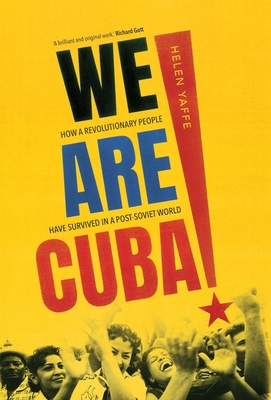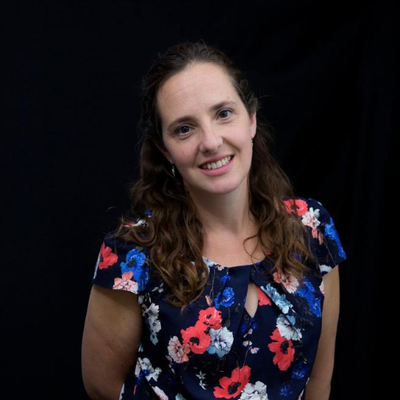
We Are Cuba!:How a Revolutionary People Have Survived in a Post-Soviet World
Interview with Helen Yaffe
October 4, 2021Sign Up to listen to full interview.
About Helen Yaffe
I joined the University of Glasgow as Lecturer in Economic and Social History in January 2018 after previously teaching in Economic History at the London School of Economics, in History at the University College London and in Development Studies at Birkbeck, University of London. My teaching focuses on Latin American and Cuban development. At the LSE, I taught the history of economics and the political economy of late development. In 2011, I joined the Geography Department at the University of Leicester as a Research Associate to work with Professor Gavin Brown on the Leverhulme-funded project Non-Stop Against Apartheid: the spaces of transnational solidarity. The project examined the history and geography of the Non-Stop Picket maintained between 1986 and 1990 by the City of London Anti-Apartheid Group outside the South African Embassy in Trafalgar Square opposing apartheid and calling for the release of Nelson Mandela. Our book, Youth Activism and Solidarity: The Non-stop Picket Against Apartheid, was published in 2017.
Since 1995 (as a teenager), I have spent time living and researching in Cuba. My doctoral thesis, undertaken at the LSE, was adapted for publication as Che Guevara: The Economics of Revolution by Palgrave Macmillan in 2009. I have continued to research and publish on Cuban development. My new book We Are Cuba! How a Revolutionary People Have Survived in a Post-Soviet World, is due for publication by Yale University Press in February 2020.
Source: University of Glasgow
Interview Summary
The six-decade-old socialist system has dominated most debates on Cuba. The glaring deficiencies of the socialist approach have widely been reported in the Western media but the revolution has also delivered notable gains and policy successes that are rarely recognized.
In We Are Cuba, author and educator Helen Yaffe offers a pathbreaking review of the deeply entrenched socialist system’s roots and Cuban leaders’ development goals and adaptability. In her well-researched book, Yaffee offers a comprehensive review of how revolutionary Cuba came to embrace a different economic system from the one that had been prevalent for at least two centuries, first under the Spanish colonialism and then under the U.S. occupations.
The 1959 revolution leaders viewed solidarity among poor people around the world to be the central defense against U.S. and European imperialism. Cuban revolutionaries believed that the global poverty and poor health are directly linked to the exploitative trade structures and policies of colonizers.
Spread over ten chapters, We Are Cuba offers a detailed view of how leaders of the island in the early 1960s confronted illiteracy, falling agriculture production, severe unemployment and divisive issue of land ownership. Along the way Yaffee explains in an easy-to-understand prose views of the socialist economists and how the planners tackled a shocking 75% unemployment rate, the country’s total dependence on trade with the U.S., lack of investments, and severe inequality.
Yaffee provides linkages to Cuban policy makers’ decisions with the ever-present U.S. blockade, challenges of acquiring technology, capital, and accessing foreign markets. The author also provides various insights into the shoe factories in Havana, farms across the fertile island, and the beautiful shores of Varadero, where tourists lounge.
Cuban bureaucrats and policy makers highlight the pressing challenges in the early 60s with the widespread tropical diseases, century old illiteracy, and lack of electricity and clean water across the nation. In the wake of the political changes, the Caribbean country successfully eradicated many of these diseases, raised literacy rates dramatically in less than a decade, and expanded electricity grid to over two-thirds of the island. The book goes on to explain how these policy makers strongly believe that Cuba’s socialist gains in human development, preventive healthcare access, as well as the eradication of malnutrition would have never been achieved under the capitalist or colonial systems.
Yaffee provides a blow-by-blow account on how Cuba came to rely on Soviet trade of crude oil, machinery, vehicles and other military assistance in exchange of sugar, nickel, and tobacco. With the collapse of Soviet Union, Cuba underwent a dramatic economic contraction of 35% in the early 90s only to bounce back with a strong partnership with Venezuela and later on with Brazil. Since then, Cuba has expanded its relationship with Canada, the European Union, and China.
In the last three decades, Cuba has not only evolved in its foreign relations but also diversified its international commodities trade to services with significant gains in healthcare services exports. Tourism has grown nearly 20-fold over the same period and is expected to remain a major foreign exchange earner. The country also attracts students from all over the world in the local medicine and healthcare faculties.
What is rarely understood, however, is that when counting together students in Cuba and under training in Venezuela, Cuba trains more doctors than the far wealthier and larger United States. At the same time, Cuba’s commitment to offer inexpensive medical services to poor nations around the world is unrivaled.
Cuba also provides significant medial and other service assistance to more than 45 nations in Africa and countries in Central America and the Caribbean region despite its weak economy and widespread poverty on the island.
The island’s policy makers stress the fact that Cuban doctors are providing medical care in more than fifty poor nations around the world at very cheap prices. Cubans are often seen serving in the deep jungles of Amazon or treating indigenous communities in Guatemala, Honduras and Bolivia, where no Western countries would contemplate serving without economic gains or religious conversions.
Yaffee courageously takes a direct aim with the prevalent myths and misinformation about Cuba including the widely held views about the extent of the Soviet aid, political isolation, effectiveness of the U.S. blockade, energy and food starvation, and medical advances. The author’s findings suggest that even at the height of the Soviet Union, Cuba received significantly less economic aid than reported in the Western media and less than the U.S. aid distributed to Latin America.
Yaffee takes readers on a fascinating journey of Cuba’s economic contradictions, policy challenges, political wilderness and gives a first-person view of the Cuban leaders’ resolve in charting an independent path and preserving the nation’s right of self-determination.
Key Topics
- How did the American occupation of Cuba lead to the exacerbation of Cuban exploitation and inequality?
- Why did Cuban people support the revolution against the U.S. capitalist system and imperialism?
- How did Cuban leaders seek to build an independent and self-reliant Cuba that was not under the influence of the U.S.?
- How dependent was Cuba to the socialist bloc and the USSR?
- How were Cuba’s relations with the U.S. capitalists and the Soviet system different?
- Why does Cuba have periodic food crises and yet leads the world in sustainable and organic farming and living?
- How has Cuba struggled and transformed under the six-decade long U.S. blockade?
- How has Cuba realigned its foreign relations focus from the U.S. to the USSR to Venezuela and Brazil to China?
- How has Cuba shifted its export focus from sugar, tobacco, and nickel to medical and other services including tourism?
- How has Cuba’s success in medical science and preventive healthcare become a cornerstone of its foreign policy in the last five decades?
- Why has Cuba’s drive for self-reliance only increased its reliance on exports and has created severe economic distortions?
- Why does Cuba suffer from low productivity, lack of investments, weak economic growth, and severe underdevelopment?
- Why do Cuban people continue to support the socialist system despite daily hardships?
- Why have the persistent calls of the imminent collapse of Cuba’s economic system and political order not turned out to be true?
